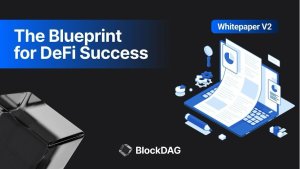Dutch c-bank finds blockchain is unfit for financial market infrastructure
This is evident from DNB’s own experiments with the distributed ledger technology.

The Netherlands central bank (DNB) has found that blockchain is not capable to respond to the needs of financial markets infrastructure (FMI). In its latest bulletin, the Dutch regulator reports of its tests involving blockchain.
The biggest shortcomings are inadequate capacity, inefficiency due to high energy consumption and lack of complete certainty about having made a payment. Nonetheless, it appears that the resilience of a financial market infrastructure against external attacks could be increased by the use of blockchain technology, but this happens at the expense of capacity and efficiency.
As an experiment, DNB has developed and evaluated four prototypes using Distributed Ledger Technology (DLT) with the code name Dukaton over the past three years. The aim was both to build up knowledge and to test to what extent these technologies are useful for improvements in payment and securities traffic.
The prototypes show that the blockchain solutions tested currently can not meet the high demands of financial market infrastructures (FMI). The list of requirements for FMIs include safety, reliability, efficiency, payment finalization (legal certainty), authorization, resilience, availability, capacity, scalability, costs and sustainability. These requirements are high because FMIs play a central role in payment and securities transactions in order to carry out the settlement of transactions.
The current payment systems are very efficient, can handle large volumes and provide the legal certainty of a payment being processed. The blockchain solutions tested show that they are not sufficiently efficient, with regard to costs and energy consumption, and they can not handle the large numbers of transactions, the Dutch regulator notes. There are algorithms that are resistant to malicious parties and can increase the cyber resilience of FMIs, but these algorithms currently do not meet the other requirements imposed on FMIs.
DNB finds the technology behind Bitcoin, the blockchain, interesting and promising. The regulator concedes that new algorithms may meet all the requirements for FMI in the future. That is why, the bank continues to invest in the exploration of this technology and is experimenting with it. DNB also conducts discussions with new and existing parties in the market about the possible applications of DLT, in order to contribute to innovation.
The announcement is made just a couple of days after the DNB said it retained its critical stance regarding central bank digital currencies (CBDC), given the uncertainties and risks associated with it. For example, CBDC makes financing for banks more expensive and undermines their ability to provide credit. In addition, CBDC could speed up a bank run in the event of a crisis. The DNB investigation will also focus on the possible use of CBDC for transactions in financial markets. The research is conducted in collaboration with other central banks.
In January this year, the regulator published a Position Paper, saying it does not see cryptocurrencies as posing a risk to the financial system stability, as the outstanding value of the cryptocurrency market is small compared to markets of fiat currencies like the euro and the dollar. But the bank noted that sudden depreciation of the value of cryptocurrencies and certain tokens (the result of ICOs) may lead to a significant harm to consumers and warned that there is no safety net against such losses.









